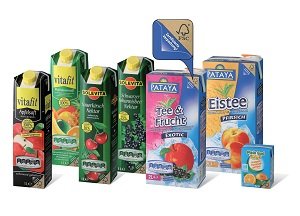A key part of India’s forest fiber consumption story today revolves around packaging. Its importance has been increasing exponentially, owing to retail growth and shifting patterns in the way goods are produced, traded, stored and transported around the country and exported overseas.
According to the Forest Stewardship Council (FSC), currently Asia, the Middle East and Africa comprise 34% of global packaging consumption whereas Europe is 34%, North America 27% and Latin America 5%. Russia, India, Brazil and China are estimated to be the source of about 30% of future global demand, a proportion that will increase as their economies develop further. Other trends in buying behavior imply an even greater need for packaging material. The sourcing of fiber to meet this demand can have particularly adverse impacts on ecologically significant areas, not just domestically, but also across the SouthEast Asian region. This reflects a larger need for India’s packaging industry to ensure it uses only sustainably sourced material when meeting its long-term raw material requirements.
Another dimension to the packaging question is labelling. Achieving credibility when it comes to sustainability parameters is becoming even more important, especially when consumers are faced with an array of ‘green’ labels. Aside from enhancing brand and differentiating products, a credible sustainability certification also offers a key advantage to the industry. If done well, it can be a vital key to long-term business success, particularly when applied strategically across the value chain— ensuring long-term, legal, environmentally and socially responsible sourcing at the plantation level; reduced inputs and pollutants at the production level; and deeper relationships with customers at the consumer level.
The FSC label assures consumers that the wood fibers of the paper and board which are used to manufacture the packaging of the product they buy are traceable all the way through the supply chain back to a well-managed forest.
For a brand, the labels that it chooses to carry on its product packaging speak volumes about its values and differentiates it from competitors. This is proved by the significant rise in sustainability certifications and labels like Fairtrade, Rainforest Alliance, Mobius Loop, etc. that act as a signal to the consumer that the respective raw materials/commodities being used in the product are environmentally and socially responsible. In the case of packaging, sustainability concerns are already critical to consumers and governments in several markets. The EU and many other markets have regulations and targets in place to minimize environmental impact and increase recovery and recycling rates of waste paper. Globally, companies, through packaging, are therefore increasingly demonstrating the highest environmental credentials to show that their products are responsibly sourced, as well as renewable, reusable and recyclable.
Planning ahead
Tetra Pak joined forces with retail chain Coop to offer carton packages bearing the FSC label on the Swiss retailer’s shelves.
The launch of FSC-labelled cartons in Switzerland marks another step towards Tetra Pak’s goal of having all its packages bear the FSC label, which is today considered the highest standard for the sustainable sourcing of wood fibers.
 The Indian packaging industry faces a continuous demand for paper and board used as core components in production, which are either manufactured with recycled or virgin fibers. Domestically, the procurement of recycled fiber is limited by poor recovery and its usability is limited by the inadequate quality of the recovered paper. These concerns make sustainable management of forests all the more essential. Through its high standards of responsible forestry, FSC ensures an economically viable and long-term flow of wood-based raw material for the industry, while maintaining forest biodiversity and securing the rights of forest communities and indigenous people. The FSC label is clearly recognizable and is proof that the original material has not come from illegally logged or environmentally damaging sources.
The Indian packaging industry faces a continuous demand for paper and board used as core components in production, which are either manufactured with recycled or virgin fibers. Domestically, the procurement of recycled fiber is limited by poor recovery and its usability is limited by the inadequate quality of the recovered paper. These concerns make sustainable management of forests all the more essential. Through its high standards of responsible forestry, FSC ensures an economically viable and long-term flow of wood-based raw material for the industry, while maintaining forest biodiversity and securing the rights of forest communities and indigenous people. The FSC label is clearly recognizable and is proof that the original material has not come from illegally logged or environmentally damaging sources.
Besides FSC, there are a few options that can be explored in order to ensure sustainability in the packaging industry in a way that is also economically and environmentally beneficial. The key is a balance of the right mix of responsible sourcing of virgin fibers, environmentally friendly utilization of alternative natural fibers like agri-residues and more efficient recovery of waste paper domestically.
Learning from the global industry
FSC is being used to the advantage of different actors along the supply. While there are conglomerates like Hindustan Unilever in India that have global sustainability commitments across several commodities, there is still a long way to go.
Annually, the LEGO Group, the world’s third largest manufacturer of play materials, uses more than 80,000 tons of paper-based products for packaging and print materials. To minimize its environmental impact globally, the company has a recycling rate of 88% of its waste in 2012. To further reduce their environmental impact, the Group decided that from 2015 the company would exclusively use FSC certified mix paper.
Similarly, Mondi, an international packaging and paper group, has integrated sustainability across its global supply chain, from the responsible management of forests, through the production and marketing of packaging and paper products to the recycling of these products. All of its leased, owned and managed land is FSC certified. Mondi also supports and uses FSC and other standards for wood and fiber purchased. In 2012, a total of 46% of wood supplied to Mondi processing plants was from FSC certified sources and another 19% from other certified sources, an improvement of 8% against 2010.
According to a comprehensive Certification Assessment Tool (CAT) developed by WWF, FSC certification is among the most credible options available to companies, particularly in cementing a basis for consumer engagement, access to new markets, protection of existing client relationships, and investor confidence. Compared to other responsible forestry certifications, FSC holds the highest standards for responsible forestry and facilitates long-term access to supply and raw material and provides the opportunity to reduce costs, increase revenues, improve brand value and avoid a number of business risks. This is further reflected in its global reach, recognition by external stakeholders like NGOs and overall stakeholder confidence from the industry.











